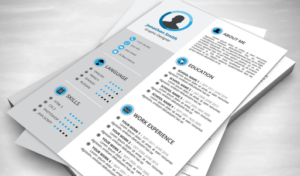Should job boards have resume databases?
 In the beginning was the job post – a classified ad on the internet.
In the beginning was the job post – a classified ad on the internet.
Then came the resume database – a collection of job seeker wit and wisdom, long and short, awful and awesome.
Employers and recruiters saw the resume database and liked it. They flourished.
Jump to now. I’m guessing that at least one-third of the job boards launched during the past year lack a resume database. What gives?
- Many of those boards are on platforms like Jobomatic, which simply doesn’t provide resume functionality.
- Resumes are seen as a dime a dozen, particularly in a down economy.
- Employers and recruiters have a bad taste in their mouths about low quality resumes – you know, the kind with misspellings, perversions of the English language, and little or no quality checks.
But I ask you: should a job board have a resume database? Is this a feature that is key to satisfying the customer, or is it a feature whose time has past? Let’s take a look at the pros and cons:
PRO: Resumes are an additional revenue source. They provide another way for employers to find candidates – without being bombarded by applications to job postings. Resumes give candidates another way to market themselves to employers.
CON: Most resumes are messes. Resume searches consume time and deliver unpredictable results. Why pay for resumes when you can find them on LinkedIn or other ‘free’ sites? Resumes are a pain to maintain from a job board’s perspective.
So? What do you think? Submit your thoughts now!
[Want to get Job Board Doctor posts via email? Subscribe here.]. [Check out JobBoardGeek, the Doctor’s podcast!)Comments (5)
Comments are closed.

I think resume search is a feature that is a nice to have for employers. For job seekers, clearly it makes things easy and difficult all at the same time. Easy because they can quickly apply without having to upload to yet another site. Difficult because they have to make sure they have the most update resume on that site.
I think the assertion that “most resumes are messes” if an overstatement. Many job seekers have no idea where to start when creating their resume.
If job boards want to really create value with their resume databases, allow job seekers to tag their resumes. This will allow them to personally say what they are interested in, their own keywords, target employers, background, etc. This will really make resume searching a valuable piece of their offerings. Now it is a crapshoot because we, employers, rely on the job boards proprietary search which does not support tagging.
With regard to LinkedIn and other “free” sites, I love personally love them. That being said, with more than 154,000,000 in the civilian labor force and only 45,000,000 or so on LinkedIn, you will be missing people who might be perfect for your opportunities.
Resume search, like job postings and other advertising methods, are a valuable piece to the ever evolving puzzle. Job boards who offer resume vs. those who do not is like comparing American Airlines/Delta/United vs. Southwest; it all depends on what type of experience you are looking for.
Entering your resume into a job board, and thus a resume database made sense for the job seeker back in the day. Back when a job seeker could actually utilize their Monster or Careerbuilder resume to apply for jobs.
Today, most job board postings link to an ATS or Corporate Career Center, forcing the job seeker to “register” each and every time they apply to a different company. I don’t believe that resume databases are enticing as they once were.
I think having resume database helps.
Recruiters may find job board by finding resume on that job board in Google.
http://www.postjobfree.com is getting lots of traffic that way.
I agree that resume database adds some hassle.
In particular spammers and scammers are actively trying to contact job seekers.
So it takes some effort to handle that, but I think in the end it well worth the effort.
Hey no way Jeff. In my opinion, now the job portals (only a limited number though) buy these talent assessment tools with the help of which they provide selected resumes and no data base as it can simply turn off the employer or recruiter. No one has time to go through the database; in fact I believe it creates confusion for the employers to screen out the potential candidates. I would recommend the companies to go for those job portals where candidates are assessed along with the submission of resume. This sets minimum qualifying criteria for the candidates to go through it; the selected resumes are then forwarded to the employers.
Oscar Hernandes
Research Analyst
Hirelabs.Inc
I think you made a good point, stating that resumes might be just be satisying for the job seeker. People have gotten so used to resume submission that they seem almost scared to apply for positions in any other way, when, realistically, the days of resume submission are over. There are just too many applicants for too few jobs. I think the best path for job boards to go down is the one that incorporates a resume within a larger candidate profile that represents a larger chunk of one’s experience that a resume ever could. Take OneWire.com (http://www.onewire.com) for example. Applicants can upload their resume, but only as a finishing touch on their thorough and detailed applicant profile.